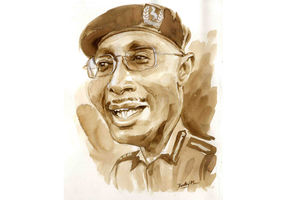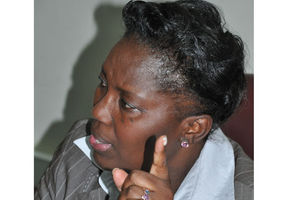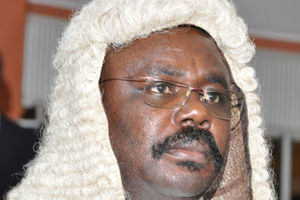
Mr Phillip Karugaba. Photo/Courtesy
I was stunned to see one of Kenyan President William Ruto’s appointees, Hassan Ali Joho, revealing his possessions before a parliamentary committee, under the full glare of the bright lights of the media. The two-hour-plus-long vetting interview was live on television and online.
Like Kenya, our Constitution provides for the vetting of presidential nominees to public offices such as ministers and judges. But that is as far as the similarity goes. The Kenyan process is open to the public while the Ugandan process is not.
We can only ooh and aah like jealous neighbours and say “kale mama”! In Uganda, there is simply no legitimate political will to grasp this bull of corruption by the horns. Our Parliament has made rules that prioritise the privacy of public officers over their accountability to the citizens. Transparency and accountability of public officials have been kicked down the road. Despite the positive language of our Constitution, our Judiciary has been complicit in burying our hopes for transparency and accountability.
Lessons from Kenya
The Appointments Committee of Parliament vets presidential nominees for judicial and other offices and ensures that nominees for Cabinet ministers do not hold any other office for profit that would conflict with their duties. The proceedings of the committee, including the interviewing of nominees, are not open to the public. The report of the committee to the full House is also not open to debate. The record of the proceedings of the committee can only be obtained under the Access of Information Act (Cap. 95), under the hand of the Speaker of Parliament, and good luck to you trying to get that.
The committee has made puzzling approvals. A case in point is Mr John Chrysostom Muyingo, a proprietor of a successful chain of secondary and primary schools and who for a dozen or so years has served as a junior minister of Education. How has Mr Muyingo served in the ministry that supervises the same sector in which he holds major personal business interests?
The rules of the committee were challenged in the Constitutional Court in Legal Brains Trust vs Attorney General. Mr Simon Kaggwa Njala, a senior journalist, was one of the petitioners. He claimed that the closed proceedings of the committee denied his right to freedom of expression in reporting on the committee proceedings. The petitioners claimed that access to the secret records of the committee would allow citizens to assess the role of their representatives to Parliament and so make an informed decision on whether to re-elect or reject them.
The case was dismissed with the court finding that a public vetting process and “the salacious and subjective comments from the public (including from political opponents) may have a deleterious effect on the reputations of the nominees and future career prospects either as a politician and parliamentarian or even as a public officer”.
It is hard to see how the irony of their findings escaped the court. How could a candidate for public office, looking to serve citizens, under the full glare of publicity, claim privacy of his vetting? For a politician, scrutiny of his life or a salacious comment would be nothing new.
For those seeking judicial office, why shouldn’t the public know their career paths, their performance and even the order or lack of it in their private lives? This after all is a public office sought by the appointee.
The court found that citizens may participate through their duly elected Members of Parliament who on their behalf may raise concerns about presidential nominees. But what about the right of the citizens to observe the interview of the appointee?
The court agreed that accountability and transparency in the appointment process were necessary for the enhancement of democracy but deferred this to the appointee’s right to privacy. If we could borrow from Kenyan jurisprudence, “accountability” means public officials must explain the way in which they have used their power, while ‘transparency’ means openness, the very opposite of secrecy.
We await to see what the Supreme Court makes of the appeal by Legal Brains Trust. We need a bright light shone in the lives of public officers to dispel the dreaded demons of corruption, abuse of office and impunity and improve the quality of our governance.
The writer is a lawyer, @PhillipKarugaba



